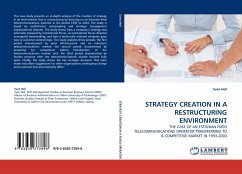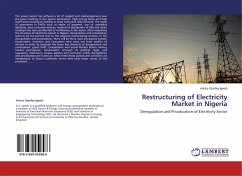This case study presents an in-depth analysis of the creation of strategy in an environment that is restructuring by focusing on an Estonian fixed telecommunications operator in the period 1993 to 2003. The study is based on institutional, sensemaking and strategic management organizational theories. The study shows how a company s strategy was externally imposed by institutional forces, as institutional forces directed managerial sensemaking; and how a technically oriented company gave way to customer-centred logic. The study explores three periods: the first period characterised by poor infrastructure and an immature telecommunications market; the second period characterised by preparing for competition before liberalization of the telecommunications market; and, the third period characterised by market pressure after the telecommunications market became fully open. Finally, the study shows the key strategic decisions that were made and offers suggestions for other organizations undergoing change across periods that also markedly differ.
Bitte wählen Sie Ihr Anliegen aus.
Rechnungen
Retourenschein anfordern
Bestellstatus
Storno








